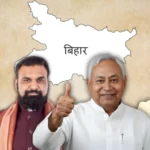Trump Warns of Heavy Tariffs on Russia if War in Ukraine Continues
Washington, September 26, 2025 – Former US President Donald Trump issued a strong warning on Thursday, indicating that if Russia continues its war in Ukraine, it will face “large-scale economic consequences” under his leadership. Trump, who is actively promoting before the midnight of 2026 and keeping an eye on another presidential post in 2028, said that his administration would not hesitate to implement Moscow “the heaviest tariffs”.
Trump’s Statement
Speaking at a rally in Pennsylvania, Trump criticized both Russia’s military actions and the Biden administration’s handling of the ongoing conflict.
“If Russia thinks it can continue this brutal war in Ukraine without consequences, they are wrong. Under my leadership, Russia would face the heaviest tariffs in history. We will make it economically impossible for Putin to continue this madness,” Trump declared to loud cheers from his supporters.
He further added that America must project strength not only militarily but also economically. According to Trump, tariffs are an effective tool to bring adversaries to the negotiating table.
Focus on Economic Pressure
While Trump has often been accused of taking a soft stance toward Russia during his presidency, his recent remarks suggest a sharper tone. By threatening “massive tariffs,” he is signaling an economic-first strategy to deal with the war, contrasting with Biden’s military aid-heavy approach.
Economic experts say tariffs on Russia could hit key sectors such as oil, gas, metals, and agricultural exports. Since the Ukraine invasion began in 2022, Western nations have already imposed multiple rounds of sanctions on Russia, but Trump insists that “the current measures are weak and poorly enforced.”
“Tariffs will be targeted, brutal, and effective,” Trump said. “They will cripple Russia’s economy until they come to the table and end this war.”
Biden Administration’s Response
The White House quickly reacted to Trump’s comments. A senior Biden administration official, speaking on condition of anonymity, said that Trump’s threats are “nothing new” and questioned the feasibility of his plan.
“President Biden has already built the largest coalition in history against Russia, imposing sanctions that have isolated Moscow financially and technologically,” the official said. “Trump had four years to stand up to Russia and failed.”
Biden himself, when asked about Trump’s remarks, responded briefly: “We’re already doing what needs to be done. Empty threats don’t stop wars.”
Reaction in Ukraine
Ukrainian officials cautiously welcomed Trump’s statement, noting that any pressure on Russia is helpful. An adviser to President Volodymyr Zelenskyy told Ukrainian media:
“We support every measure that weakens Russia’s ability to wage war. However, tariffs alone may not be enough. We need continued security assistance, weapons, and global unity.”
The Ukrainian government has long urged the West to tighten sanctions further, particularly targeting Russia’s energy exports, which remain a major source of revenue for Moscow.
Russia’s Response
Moscow dismissed Trump’s remarks as “political theatrics.” Russian Foreign Ministry spokesperson Maria Zakharova said on Friday:
“Donald Trump is trying to use the Ukrainian crisis for his own political comeback. His threats of tariffs are unrealistic and will only hurt American consumers.”
Kremlin officials have consistently argued that Western sanctions and restrictions have failed to bring Russia to its knees, claiming the economy has adapted to new realities.
Analysts’ Views
Political analysts see Trump’s latest remarks as part of his strategy to portray himself as tougher on adversaries than Biden, especially on issues of foreign policy.
“Trump is tapping into the narrative of economic nationalism, promising to use tariffs as a weapon,” said Michael O’Hara, a political scientist at Georgetown University. “He is appealing to voters who believe in putting ‘America First’ while simultaneously showing he can pressure Russia more effectively.”
Economists, however, warn that imposing massive tariffs on Russian goods could also backfire, potentially driving up global prices of oil, gas, and metals, thereby affecting U.S. consumers.
Domestic Political Impact
Trump’s comments come at a time when American voters are divided over continued support for Ukraine. While Democrats largely back Biden’s aid packages, many Republicans have expressed skepticism, arguing that billions spent on Ukraine could be better used domestically.
By proposing tariffs instead of large military aid commitments, Trump positions himself as offering a cheaper, more “America-focused” alternative. His campaign team has already begun framing the proposal as “tough on Russia, easy on taxpayers.”
Global Implications
If enacted, Trump’s proposed tariffs can significantly move the global business landscape. Experts suggest that American associates in Europe and Asia may welcome strong measures but worry about potential wave effects.
Sarah Kim, a senior analyst at the London School of Economics, said, “Tariffs can reduce Russia’s revenue, but they can also trigger countermeasures, interrupting the global supply chains.” “This can especially stress more in global energy markets in Europe.”
China, which has strengthened business relations with Russia since the war began, can also play an important role. If the American tariff cuts Russia’s reach in the Western markets, Beijing could become the lifeline of Moscow.
Conclusion
Donald Trump’s heavy tariff warning on Russia is a new chapter in the US political debate on the Ukraine War. While Biden has overshadowed military assistance and restrictions, Trump is betting that an aggressive tariff-based strategy can weaken Russia and resonate with American voters.
As there is no end to the war in Ukraine, Trump’s statement already adds another layer to the complex geopolitical equation. Whether such a tariff strategy can be successful remains uncertain, but it has made the issue of the U.S.-Russia policy back to the headlines as the US prepares for its next political battle.













